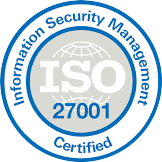Analyzing the Okta Customer Support Breach Through the Lens of BeyondTrust
In a year marked by multiple high-profile breaches, the security incident involving Okta’s customer support system stands out. Announced on October 20, 2023, the incident has ignited conversations about the vulnerabilities associated with Identity and Access Management (IAM) platforms.
This article delves into the details and timeline of the breach, the critical vulnerabilities exposed, and the lessons for enterprises in safeguarding their IAM solutions.
Detailed Overview and Timeline
The timeline of the incident, as detailed on the BeyondTrust blog, is as follows:
October 2: Early Detection
BeyondTrust, an Okta customer, discovered an identity-centric attack on an in-house Okta administrator account, which was triggered by a valid session cookie stolen from Okta’s support system. The attack was immediately detected and remediated by BeyondTrust’s Identity Security tools, averting any potential damage to their infrastructure or their customers.
The incident stemmed from a compromise in Okta’s support system, which allowed the attacker to access sensitive files uploaded by their customers.
October 3: Initial Follow-up
BeyondTrust alerted Okta and urged for an escalation to Okta’s security team as initial forensics pointed towards a compromise within Okta’s support organization.
October 11-13: Reiterated Concerns
Despite not receiving an immediate response, BeyondTrust held Zoom sessions with Okta’s security team to share their findings and express their concerns regarding a possible compromise.
October 19: Incident Containment
Okta’s security leadership confirmed the internal breach, notifying BeyondTrust as one of the affected customers.
October 20: Public Acknowledgment
Okta publicly acknowledged the breach via a blog post.
Key Points of Vulnerability
Access Tokens Stolen
The hackers gained access to Okta’s customer support case management system and were able to view HAR files that contained customers’ cookies and session tokens.
HAR Files – A Double-edged Sword
HAR files were often requested by Okta when troubleshooting issues with customers. However, these files can contain sensitive information, like cookies, session tokens, and potentially even passwords, making them a treasure trove for hackers if compromised.
The Dangers of Uploading HAR Files
HAR files contain a plethora of sensitive information, such as cookies, session tokens, and potentially even passwords. While they can be vital for troubleshooting, they are a gold mine for hackers if compromised.
Precautions
- Sanitize HAR Files: Remove all sensitive data before sharing (source: Okta Blog, October 20, 2023).
- Use Encrypted Channels: Always share such sensitive files over encrypted channels.
- Immediate Deletion: Request for the immediate deletion of the file once troubleshooting is completed.
Technical Insights and Recommendations from BeyondTrust
Session Hijacking: Attackers steal Okta session cookies to access Okta from infrastructure they control, bypassing most MFA and security controls related to authentication.
Proxy Usage for Administrative Actions: The attacker used a proxy to login as a privileged user and perform sensitive administrative actions, a tactic often employed by Okta-focused attackers.
Privilege Escalation: Attackers often attempt to escalate privileges or grant privileges to backdoor accounts, showcasing the importance of monitoring admin assignments.
Password Health Report Generation: Rare generation of password health reports could be an indicator of suspicious activity.
MFA Vulnerable to SIM Swapping: Utilizing robust MFA solutions like FIDO2 can expedite incident response processes by ruling out certain attack vectors.
Indicators of Compromise: Several indicators such as access to Okta admin functions through proxy, access from certain IP addresses or using outdated user agents, and unusual Okta account creations via REST API can signal potential compromise.
Posture Improvements: Recommendations include adding policy controls in Okta, adjusting Okta global session policy, limiting session lengths, requiring strong hardware MFA for all Okta admins, and being aware of session hijacking risks and admin API actions authenticated via session cookie limitations.
Relevance of Acsense in IAM Resilience
The Okta incident highlights the vulnerabilities that even established IAM solutions can possess.
Acsense, the Enterprise IAM Resilience Platform, addresses these challenges uniquely with:
- Effortless Data Security: Our continuous backups and granular, any point-in-time recovery ensure the security of your Okta data and configurations.
- Seamless Continuity: Swiftly recover from IAM disruptions with optimal Return Point Objectives (RPO) and Return Time Objectives (RTO).
- Compliance Mapping: Automated recoverability reports and 3-2-1 aligned infrastructure streamline IAM compliance across standards like SOC2, and ISO 27001.
Conclusion
The Okta customer support breach serves as a wakeup call to enterprises relying heavily on IAM solutions.
While the incident was contained, the vulnerabilities exposed have far-reaching implications that demand immediate attention.
As noted by IAM expert David Lee aka Identity Jedi in his latest newsletter , a robust defense against attacks necessitates the harmonious integration of People, Process, and Technology.
In the case of the Okta breach, BeyondTrust exemplified this triad by promptly detecting and mitigating the attack through their own Identity Security tools. Moreover, this incident highlights the critical role of technical acumen and robust processes in promptly identifying and addressing security incidents.
It also underscores the importance of continuous education and awareness among all stakeholders to ensure a cohesive defense against evolving cybersecurity threats.
FAQ
What Are HAR Files?
HAR (HTTP Archive) files are utilized for logging interactions between a web browser and a website.
They are instrumental in troubleshooting issues as they contain a record of web requests and responses, including the URLs, the browser’s request and response headers, and payload information. However, they can also contain sensitive data like cookies, session tokens, and potentially even passwords, thus posing a significant security risk if not handled securely.
In the Okta incident, a HAR file was requested by an Okta support agent to assist a BeyondTrust Okta administrator in resolving an ongoing support issue, which unfortunately led to the compromise of a session cookie that the attacker exploited.



